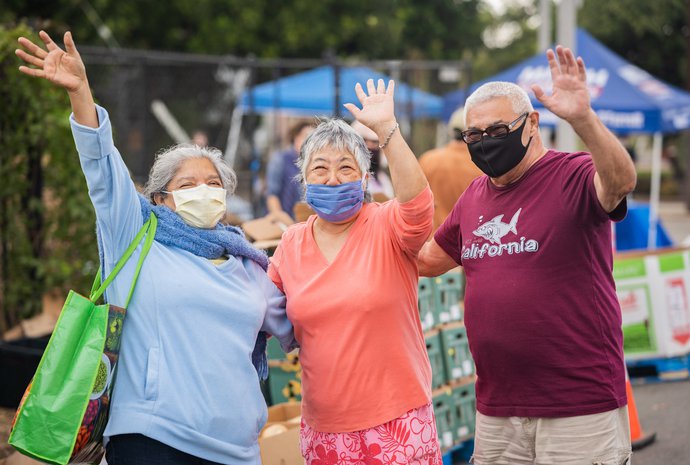July is Disability PRIDE Month
HOPE, Inc. (Home Ownership for Personal Empowerment) is a non-profit organization whose mission is to create stable, affordable housing options for people with intellectual and developmental disabilities (I/DD). This month marks the 32nd anniversary of the Americans with Disabilities Act and the value of empowering individuals to live as active and contributing community members continues to be at the heart of HOPE.


LISC LA first partnered with HOPE in 2020 through Section 4. The Section 4 Program is the only program at the U.S. Department of Housing and Urban Development (HUD) specifically designed to build the capacity of nonprofit community development corporations. LISC LA provided HOPE with a Section 4 grant to build its capacity to purchase and preserve licensed group homes in LA County that are being lost as affordable housing through private sales at an alarming rate.
Knowing that independence changes people's lives is a key reason why HOPE works to address the issue of the affordable rental housing shortage. According to the Center for American Progress, adults with disabilities experience poverty at more than twice the rate of adults without disabilities; This trend affects women with disabilities and people of color with disabilities at disproportionate rates. People with disabilities hold higher shares of medical debt, experience higher rates of food insecurity, and receive lower pay. These and other factors contribute to higher rates of homelessness.
HOPE and its Regional Center partners are committed to creating safe affordable housing for those they serve in LA County. They value providing homes that are inclusive within the community and least restrictive in terms of opportunity for residents to lead full and active lives.
“HOPE addresses social injustice by providing housing for one of the most vulnerable and underrepresented groups in our society, people with I/DD,” said HOPE representative Lauren Quijano-Gin. “Thanks to our partnership with LISC LA, hope was able to conduct the necessary accessible community outreach activities to reach more individuals with I/DD.”
Through LISC LA’s support, HOPE has created 30 online rental property profiles for each of their locations with easy-to-understand instructions for applying to their housing and housing access and retention services. In addition, their materials are now more accessible through their language and digital accessibility.
As HOPE resident Scott says, “I would like to thank all responsible that worked on getting me my apartment. It has been a long journey, but I am now beginning a new chapter in my life, and I could not have done it without HOPE.”
HOPE housing models include Supportive Housing, Independent Living, 24-Hr Residential Care, and College to Career. HOPE currently operates 98 locations that contain 150 units of housing, to serve 358 people in 18 unique cities.
To learn more about HOPE, visit http://www.hope-homes.org.


